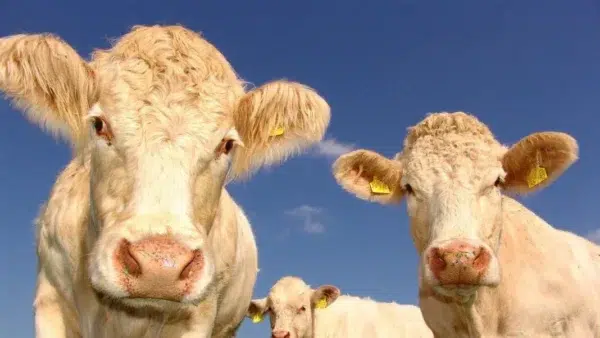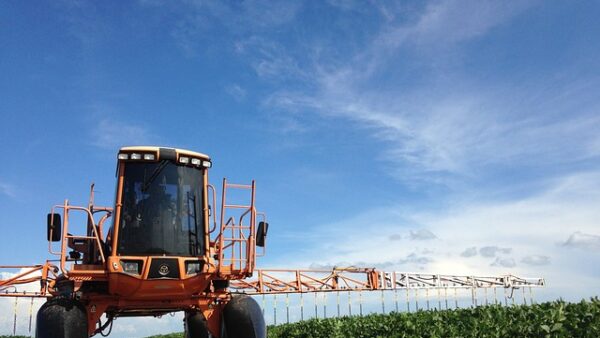Finding the right business to partner with might not always be something straightforward — it could take a few years of discussion, and in a lot of cases, a few years of building a relationship before the idea of acquisition even comes to the table. The right partner can help you maintain key characteristics that are important to your business and finding a strategic fit is important for the growth and productivity of an independent acquisition.
To start, it’s all got to fit into the strategy of the business.
“We’re not going to try to find a rice company in Louisiana — it just doesn’t fit because we’re focused largely on food and feed solutions in the upper Midwest,” says Colin Steen, CEO of Legacy Agripartners. “We’re going to stick to what’s important to us, what our mission and what our values are as a company.”
Considering geographic fits and minimizing any overlap with your existing sales force is important, says Rob Robinson, owner and CEO of Rob-See-Co.
“You don’t want a lot of duplication of people on top of other people’s jobs, because no one will end up happy in that case,” he says. “You want to look for partners in areas where you don’t really have a presence or your presence is so light that the risk of overlap is low.”
Occasionally, Steen says this can be challenging, especially when you want to open your doors to businesses with the same values.
“There’s all these new opportunities and companies looking for new partnerships that are just great family-run firms — but you have to realize, you have to stick to something where you can extract some synergies,” he says.
Instead of looking at cost-cutting, Steen instead looks at synergies that can really boost the company.
But, it’s also about networking, making new friends in the industry and finding who fits into your company values as well.
“There’s a lot of similarity between people in the Midwest,” Robinson says. “We really try to get to know the management team through discussions prior to an acquisition and get to know the rest of the team through due diligence to get a real sense for the company.”
Finding that commonality in values, helps in the long run to smooth the transition of an acquisition.
“When you feel that you have a lot of commonalities, that really helps things work well,” he adds.
Determining if you have a similar company culture helps in the long run for smoother transitions as well.
“You don’t need exactly the same culture, but some elements that are similar,” says Foor. “Finding strong alignment through a culture that’s focused on working hard and having fun while you do it helps with what you want to build.”
Maintaining Independence Through Growth
As independents look to grow and expand through acquisitions, there’s only one last question left to address: how do you maintain independence when your company continues to grow larger through acquisitions?
“It’s a challenge, and it’s made harder by the fact that sometimes the legal agreements we have with certain suppliers don’t allow for companies to remain independent,” Steen says. “For me, it’s remembering where you came from.”
Steen believes when you keep in mind the founders of the company — in his case, the original three founders of Legacy Seeds, or John Diehl at DF Seeds— it helps to remember where you came from, why the company was established and what problems you are trying to solve.
“That keeps us pretty grounded, and reminds us of our independentness,” he says.
For Robinson and Rob-See-Co, it’s about maintaining some of the independent values and business strategies.
“We emphasize being independently owned and family owned,” Robinson says. “But, we operate in an independent fashion. There’s speed in decision making and flexibility — we focus on not being bogged down with bureaucracy, since we’re not part of a larger company.”
But above all, focusing on relationships is incredibly important to maintain independentness.
“We all know each other, we have good relationships and we’re developing relationships with the new companies and new people joining us. Those relationships are incredibly important, and overcommunicating so your team understands where you’re headed, what you’re doing and why you’re doing it is important.”
And for Dan Foor, it’s all about focusing on the No. 1 goal to all companies: your customer.
“The critical aspect to manage as a company grows — either organically or through acquisition — is maintaining the needs of our customers,” Foor, senior vice president of Distribution at DLF North America, says. “That way, they see the positive changes from that growth. Collaborations through mergers and acquisitions are really important, especially in the specialty seed sector — it keeps your business relevant and thriving. But ultimately, it all goes back to your relationship with the customer — hopefully the customers are benefitting from a better experience through the evolution of your business.”
In the future, Steen believes there’s going to be more change and more partnerships in the industry.
“There’s been lots of change this year, and there’ll be more to come in the future,” Steen says. “In the future, we’re going to see a lot of partnerships between like-minded companies — whether that’s in sharing warehouse expenses, teaming up on production to improve margins or full blown acquisitions.”
Make sure to read part one about why independents are considering partnerships through mergers and acquisitions.
Want to read more? Visit:
Independents are Partnering with Purpose
When Working with Authority, Use with Care













